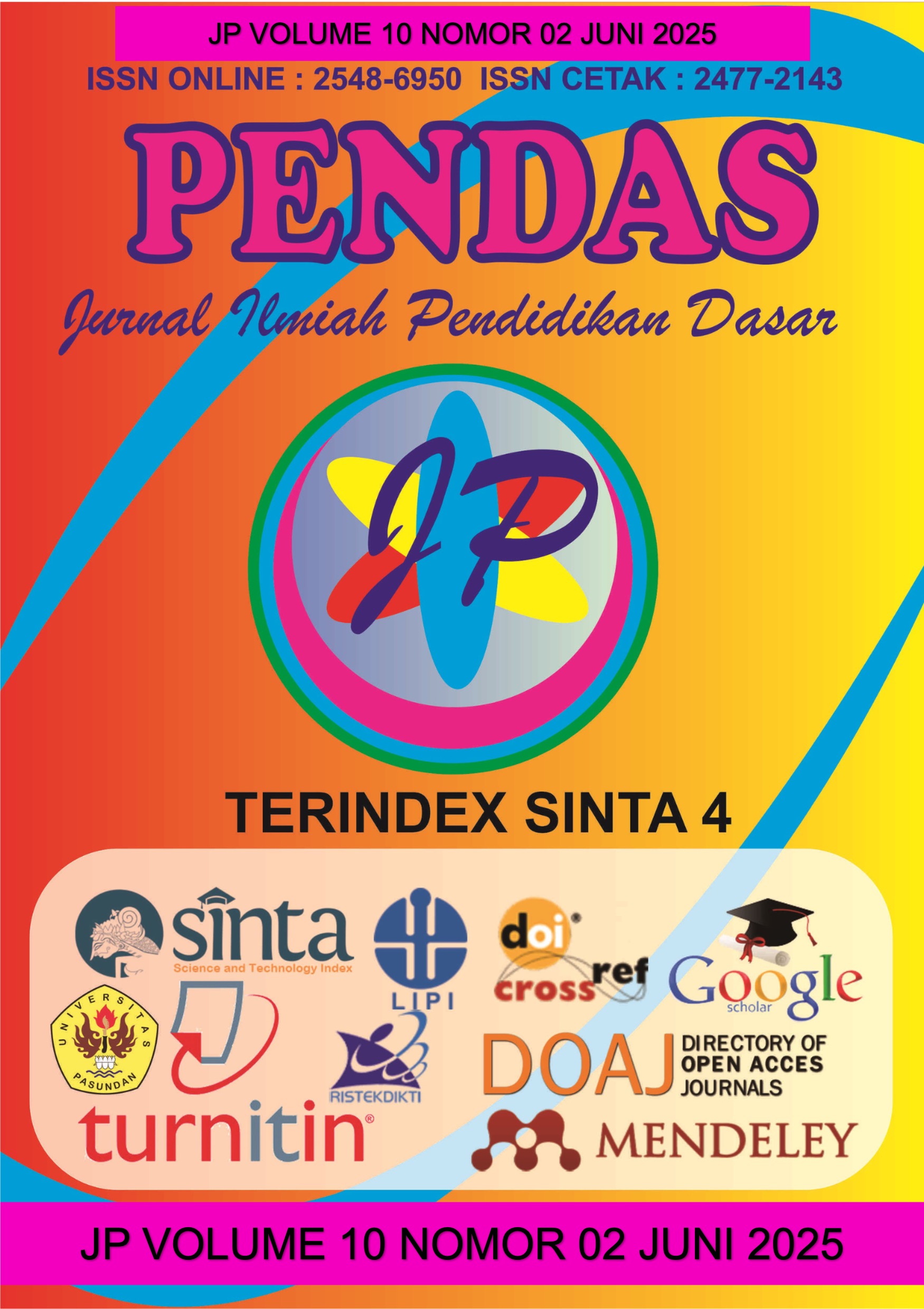PENDIDIKAN KARAKTER DALAM MEMBANGUN KEMANDIRIAN SISWA
DOI:
https://doi.org/10.23969/jp.v10i02.25849Keywords:
character education, student independence, social behavior, curriculum integration, teacher training, project-based approach, influence of technology.Abstract
This study aims to examine the role of character education in fostering student independence in schools through the integration of a curriculum that instills character values such as discipline, responsibility, and honesty. Based on a literature review of articles published between 2020 and 2025, it was found that well-structured character education can enhance student independence by strengthening their sense of responsibility and ability to make independent decisions. Additionally, character education contributes to the development of positive social behavior, including increased empathy and interpersonal skills among students. However, challenges in implementing character education in practice, particularly related to teacher training and family support, remain significant barriers. This study recommends that schools adopt project-based approaches that integrate character values into learning, as well as strengthen collaboration between schools, families, and communities. The findings also suggest the need for further research on the role of technology in supporting character education and the development of student independence.
Downloads
References
Eccles, J. S., & Roeser, R. W. (2011). Schools as developmental contexts during adolescence. Journal of Research on Adolescence, 21(1), 225-241. https://doi.org/10.1111/j.1532-7795.2010.00725.x
Flick, U. (2014). An introduction to qualitative research (5th ed.). Thousand Oaks, CA: SAGE Publications.
Gough, D., Oliver, S., & Thomas, J. (2017). An introduction to systematic reviews (2nd ed.). Thousand Oaks, CA: SAGE Publications.
Hughes, L., Campbell, K., & Smith, T. (2021). Character education and its impact on social behavior in adolescents. Journal of Adolescence, 45(4), 102-110. https://doi.org/10.1016/j.adolescence.2021.03.002
Jesson, J., Matheson, L., & Lacey, F. M. (2011). Doing your literature review: Traditional and systematic techniques. London: SAGE Publications.
Jeyaraj, A., & Samuel, S. (2022). Project-based learning and character development in the classroom. Educational Research Review, 15(1), 25-38. https://doi.org/10.1016/j.edurev.2022.02.001
Lee, S., Kim, S., & Choi, H. (2023). The role of character education in enhancing student autonomy. Educational Psychology, 45(6), 213-229. https://doi.org/10.1080/01443410.2023.1997528
Lickona, T. (1991). Educating for character: How our schools can teach respect and responsibility. New York: Bantam Books.
Muhamad, L., SYARIF, M., & NURKHOLIK. (2024). Implementasi pendidikan karakter peduli lingkungan melalui organisasi Rohani Islam: Studi di SMK Al Ihsan Sukanegara Ahmad. VOCATIONAL Jurnal Inovasi Pendidikan Kejuruan, 4(No. 1). https://jurnalp4i.com/index.php/vocational/article/view/4145
Narvaez, D. (2006). The Neo-Kohlbergian approach to moral development. In M. Killen & J. Smetana (Eds.), Handbook of moral development (pp. 5-32). Mahwah, NJ: Lawrence Erlbaum.
OECD. (2018). The future of education and skills: Education 2030. Paris: OECD Publishing.
Perry, C. (2013). Systematic literature reviews in social science. Journal of Research in Social Science, 14(2), 35-47. https://doi.org/10.1016/j.jrss.2013.07.002
Ryan, R. M., & Deci, E. L. (2000). Self-determination theory and the facilitation of intrinsic motivation, social development, and well-being. American Psychologist, 55(1), 68-78. https://doi.org/10.1037/0003-066X.55.1.68
Tran, L. T. (2015). Education and globalisation: The systematic review of literature. Journal of Global Education, 2(3), 72-90. https://doi.org/10.1016/j.jge.2015.04.006
Wang, Y., & Ho, K. (2022). Empathy and social behavior development through character education. Journal of Social Psychology, 58(2), 122-136. https://doi.org/10.1080/00224545.2022.2051945
Zhao, X., Zhang, L., & Wang, Q. (2023). Character education and its impact on adolescent behavior in the classroom: A comparative study. International Journal of Educational Development, 72(3), 148-157. https://doi.org/10.1016/j.ijedudev.2022.103091
Zimmerman, B. J. (2002). Becoming a self-regulated learner: An overview. Theory Into Practice, 41(2), 64-70. https://doi.org/10.1207/s15430421tip4102_2
Downloads
Published
Issue
Section
License
Copyright (c) 2025 Pendas : Jurnal Ilmiah Pendidikan Dasar

This work is licensed under a Creative Commons Attribution 4.0 International License.














































